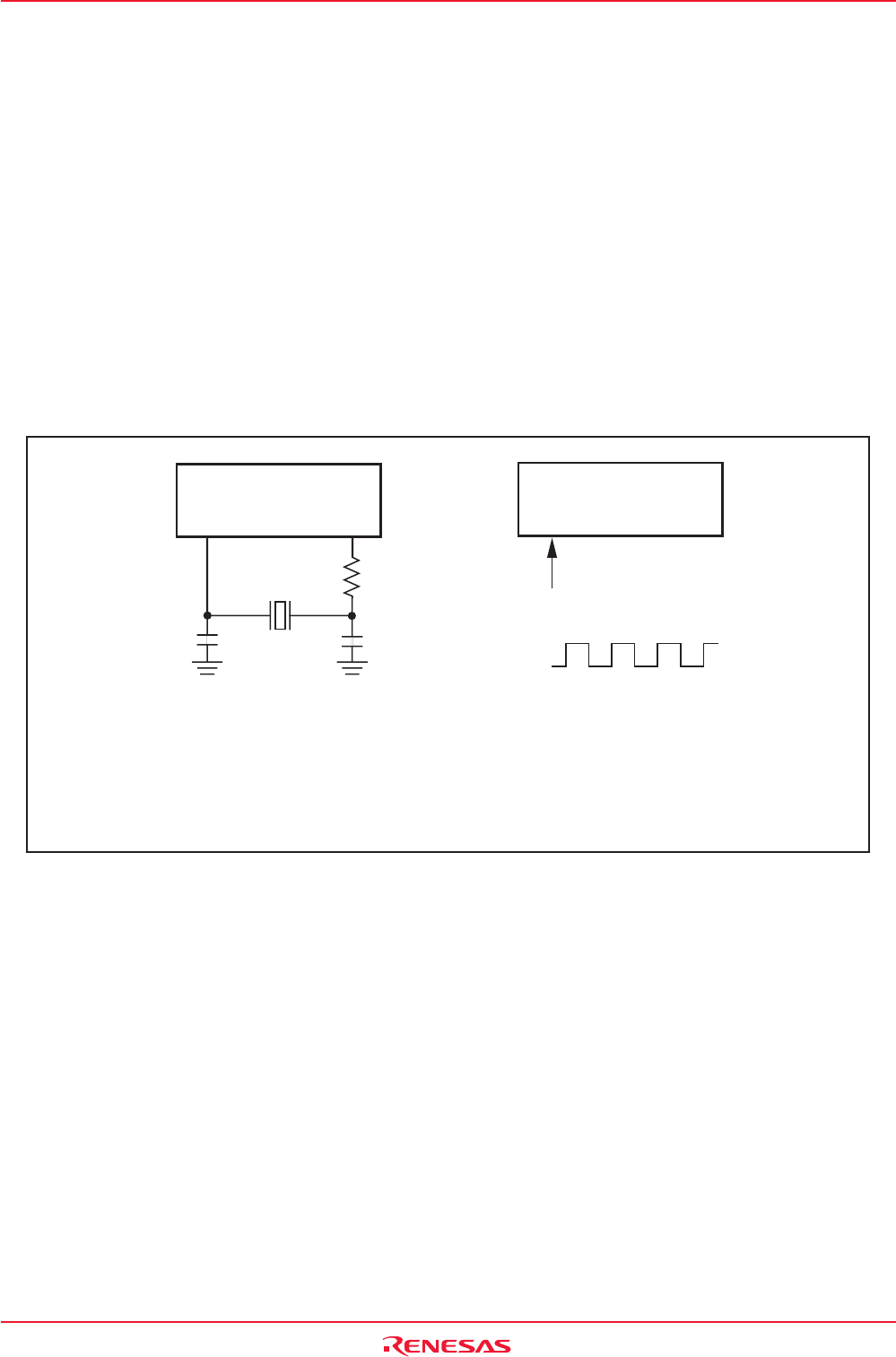
Rev.1.02 Jul 01, 2005 page 40 of 314
REJ09B0126-0102
M16C/6N Group (M16C/6NL, M16C/6NN) 7. Clock Generating Circuit
Under development
This document is under development and its contents are subject to change.
Figure 7.10 Examples of Sub Clock Connection Circuit
7.1.2 Sub Clock
The sub clock is generated by the sub clock oscillation circuit. This clock is used as the clock source for
the CPU clock, as well as the timer A and timer B count sources. In addition, an fC clock with the same
frequency as that of the sub clock can be output from the CLKOUT pin.
The sub clock oscillator circuit is configured by connecting a crystal resonator between the XCIN and
XCOUT pins. The sub clock oscillator circuit contains a feedback resistor, which is disconnected from the
oscillator circuit during stop mode in order to reduce the amount of power consumed in the chip. The sub
clock oscillator circuit may also be configured by feeding an externally generated clock to the XCIN pin.
Figure 7.10 shows the examples of sub clock connection circuit.
After reset, the sub clock is turned off. At this time, the feedback resistor is disconnected from the oscilla-
tor circuit.
To use the sub clock for the CPU clock, set the CM07 bit in the CM0 register to “1 ” (sub clock) after the
sub clock becomes oscillating stably.
During stop mode, all clocks including the sub clock are turned off. Refer to 7.4 Power Control.
Microcomputer
(Built-in feedback resistor)
Externally derived clock
Open
VCC
VSS
Microcomputer
(Built-in feedback resistor)
XCIN XCOUT XCIN XCOUT
RCd
(1)
CCIN
CCOUT
NOTE:
1.Place a damping resistor if required. The resistance will vary depending on the oscillator
and the oscillation drive capacity setting. Use the value recommended by each
oscillator the oscillator manufacturer.
When the oscillation drive capacity is set to low, check that oscillation is stable.
Also, place a feedback resistor between XCIN and XCOUT if the oscillator manufacturer
recommends placing the resistor externally.


















